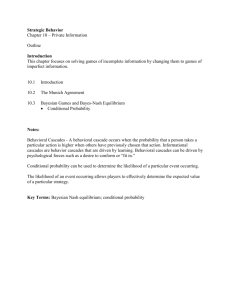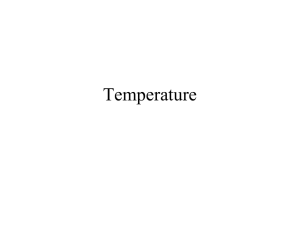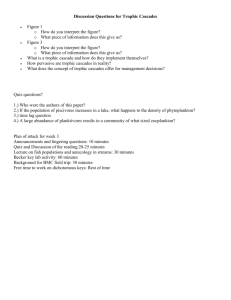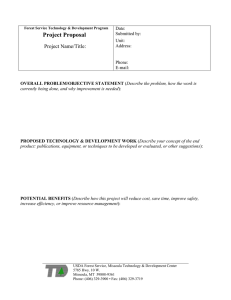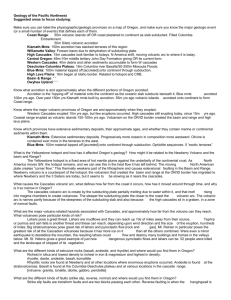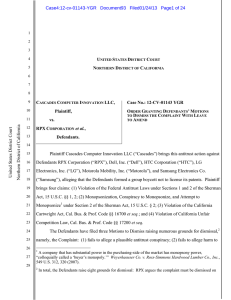Geologic Overview of the Clackamas Basin Peter Wampler OSU
advertisement
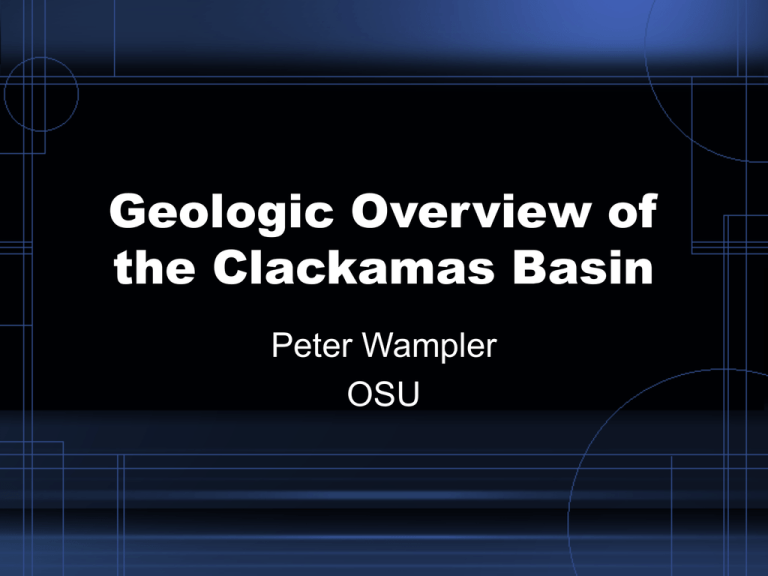
Geologic Overview of the Clackamas Basin Peter Wampler OSU Cascade Mountains High Cascades • Young volcanic chain • Composite volcanoes erupting ash and pumice • Young basalt flows and cinder cones cover large areas • Glacial deposits are present near peaks • Basalt flows may modify drainages. • Alters hydrology and drainage patterns. Western Cascades • Produced 6 times the volcanism of the high cascades • Collision during formation was “head on” and at a steeper angle • Comprised of deeply eroded and weathered volcanic rocks • Prone to mass wasting • Columbia River Basalts occur with the same geographic area but are more similar to High Cascades in terms of erosion potential Tectonic Effects on Grains Size The Willamette Valley Province • Valley Sediments (filling the bowl) – Recent Alluvium (<1,000 years old) – Holocene (<10,000 years old) Terraces – Pleistocene (>10,000 years old) – Sand River Mudstone – Springwater Formation – Missoula Flood Silts •Clackamas River is very dynamic • Cut down from Estacada Surface approximately 140 ft since Missoula Floods Estacada Terrace
